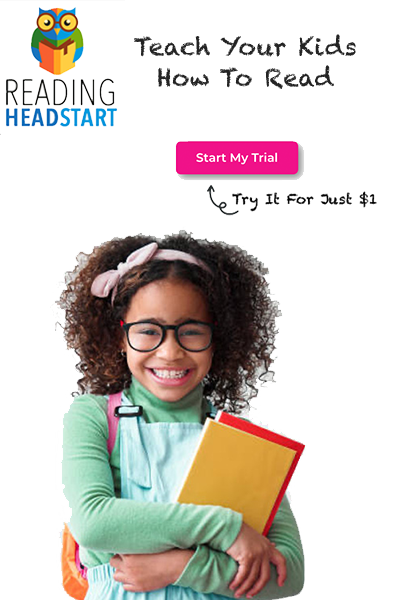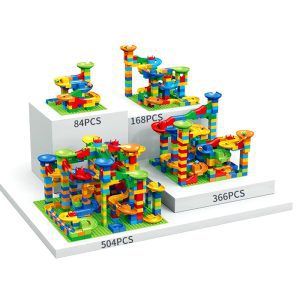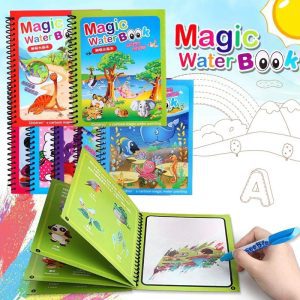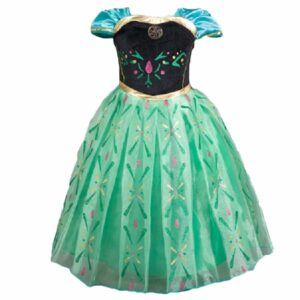Imagine a world where children not only excel academically but also develop into empathetic, creative, and mentally resilient individuals. Early reading can be the key to unlocking this world. As a seasoned educator and researcher in childhood literacy, I invite you to explore the profound benefits of early reading and discover how you can foster a lifelong love of learning in your child.
Cognitive Development
Reading to young children is more than a bonding activity; it’s a powerful tool for cognitive development. Research has shown that early reading experiences stimulate brain regions associated with visual imagery and language comprehension(Child Mind Institute) (Children’s Bureau). This stimulation is crucial during the early years when the brain’s plasticity allows for significant developmental strides.
When children are exposed to books and stories early in life, they develop enhanced neural connections. Studies from the University of Michigan have demonstrated that reading activates regions of the brain linked to visual and auditory processing, critical thinking, and emotional regulation. This complex neural engagement strengthens cognitive abilities and lays a solid foundation for future learning.
Furthermore, the tactile experience of handling books, combined with the auditory input of listening to stories, engages multiple senses. This multisensory approach enhances the brain’s ability to integrate and process information, making early reading a vital component of cognitive development.
Improved Language Skills
From the first lullabies to bedtime stories, the words we share with our children build their language skills. Early exposure to reading enhances vocabulary, grammar, and comprehension. According to a study by the American Academy of Pediatrics, children who are read to regularly develop a larger vocabulary and better language skills, preparing them for academic success (Children’s Bureau) (Homepage – Educators Technology).
Children who hear a variety of words and sentence structures develop a richer vocabulary and more sophisticated language skills. They learn the nuances of language, including syntax and grammar, through repeated exposure to the rhythm and patterns of written language. This early linguistic input is crucial for developing reading proficiency and effective communication skills.
Moreover, reading introduces children to the “language of books,” which often differs from everyday spoken language. Books use more descriptive and varied vocabulary, complex sentence structures, and formal grammatical rules. This exposure helps children understand and use these elements in their own speech and writing, enhancing their overall language abilities.
Phonological Awareness
The rhythm and rhyme of early reading sessions boost phonological awareness. Children learn to recognize and manipulate sounds, a foundational skill for reading proficiency. As Griffin (1992) notes, reading aloud broadens auditory vocabulary and improves pronunciation (Homepage – Educators Technology).
Phonological awareness, the ability to hear, identify, and manipulate phonemes, is critical for learning to read. Children with strong phonological awareness can segment words into individual sounds, blend sounds to form words, and manipulate sounds within words. These skills are essential for decoding and spelling, making phonological awareness a key predictor of reading success.
Books with rhyming texts, alliteration, and rhythmic patterns are particularly effective for developing phonological awareness. Activities such as clapping out syllables, playing sound matching games, and emphasizing rhyming words during reading sessions can further enhance these skills. Parents and educators can use these strategies to make early reading both educational and enjoyable.

Academic Preparation – Early Literacy Skills
Children exposed to reading before preschool are better prepared for academic challenges. They develop phonemic awareness, vocabulary, and reading comprehension—skills essential for academic success. A study by the University of Michigan highlights these early literacy skills as predictors of future academic performance (Children’s Bureau).
Early literacy skills include understanding the relationship between letters and sounds (phonics), recognizing sight words, and developing comprehension strategies. Children who master these skills before entering school are more likely to read proficiently by the third grade, a critical milestone for future academic success.
Phonemic awareness, the ability to hear and manipulate individual sounds in words, is a foundational skill for reading. Activities such as identifying initial sounds, segmenting words into phonemes, and blending sounds to form words can help children develop phonemic awareness. Reading books with repetitive patterns and engaging in phonemic awareness games are effective strategies for building this skill.
Vocabulary development is another crucial aspect of early literacy. Children who are exposed to a rich vocabulary through reading have a larger pool of words to draw from when they begin to read independently. Parents and educators can enhance vocabulary development by reading a variety of books, discussing new words, and encouraging children to use new vocabulary in conversations and writing.
Reading comprehension involves understanding and interpreting the meaning of text. Early exposure to books helps children develop comprehension skills by encouraging them to make predictions, ask questions, and relate the story to their own experiences. Engaging children in discussions about the book, asking open-ended questions, and encouraging them to retell the story in their own words are effective ways to enhance comprehension skills.
Long-term Academic Success
The benefits of early reading extend well into the school years. Children who enjoy early reading experiences are more likely to excel academically, from kindergarten through high school. They develop a love for learning and a strong foundation in literacy that supports their educational journey (Children’s Bureau) (Mom Loves Best).
Research has shown that children who are read to regularly are more likely to have higher academic achievement and better school readiness skills. They perform better on standardized tests, have higher grades, and are more likely to graduate from high school and pursue higher education. The skills and knowledge gained through early reading provide a strong foundation for lifelong learning and academic success.
In addition to academic benefits, early reading fosters a positive attitude towards learning. Children who develop a love for reading are more likely to view learning as an enjoyable and rewarding activity. This intrinsic motivation for learning can lead to greater engagement and persistence in academic tasks, contributing to long-term success.
Moreover, early reading experiences promote critical thinking and problem-solving skills. By engaging with diverse texts and exploring different perspectives, children learn to analyze information, draw inferences, and make connections between ideas. These cognitive skills are essential for academic success and are transferable to various subjects and disciplines.
Emotional and Social Benefits
Reading together creates a unique bond between parents and children. This shared activity fosters a sense of security and intimacy, enhancing emotional connections. According to the Children’s Bureau, this bonding time is crucial for developing trust and emotional well-being (Children’s Bureau) (Mom Loves Best).
The physical closeness and shared attention during reading sessions provide a comforting and nurturing environment for children. This emotional connection helps children feel valued and loved, promoting a sense of security and well-being. The consistent, predictable nature of reading routines also provides stability and comfort, which are essential for emotional development.
Reading together also offers opportunities for parents and children to communicate and connect on a deeper level. Discussing the story, sharing thoughts and feelings, and asking questions about the characters and events enhance the parent-child relationship. These interactions build trust and understanding, laying the foundation for open communication and a strong emotional bond.
Development of Empathy
Books are windows into other worlds and minds. Through stories, children learn to understand and empathize with characters, fostering emotional intelligence. This development of empathy is crucial in today’s diverse and interconnected world (Mom Loves Best).
Empathy, the ability to understand and share the feelings of others, is a critical social skill that promotes positive relationships and prosocial behavior. Reading stories that depict diverse characters and situations helps children develop empathy by encouraging them to see the world from different perspectives. By identifying with characters and experiencing their emotions, children learn to relate to others’ feelings and experiences.
Parents and educators can enhance empathy development by choosing books that address social issues, cultural diversity, and emotional challenges. Discussing the characters’ feelings, asking questions about their motivations, and encouraging children to consider how they would feel in similar situations can deepen their understanding and empathy.
Coping Skills
Stories often depict characters facing various challenges. Children learn coping mechanisms by observing how characters navigate emotions and obstacles. This can be particularly helpful in teaching children how to handle their own feelings and experiences (Mom Loves Best).
Books provide a safe space for children to explore complex emotions and situations. By seeing how characters deal with difficulties, children learn valuable coping strategies that they can apply to their own lives. Stories about overcoming adversity, managing emotions, and resolving conflicts can help children develop resilience and problem-solving skills.
Parents and educators can use books as tools to help children understand and cope with their own emotions. Discussing the characters’ challenges, exploring their solutions, and relating the story to the child’s own experiences can provide valuable lessons in emotional regulation and coping.

Behavioral and Mental Health Benefits
Regular reading has been linked to fewer behavioral issues. Children who engage in reading are less likely to exhibit aggression and more likely to have better mental health outcomes. The structured, calming activity of reading supports emotional regulation and reduces stress【13†source】【15†source】.
Reading provides a positive outlet for children to channel their energy and emotions. The calming nature of reading can reduce hyperactivity and impulsivity, promoting better behavior and self-control. The focus and concentration required for reading also enhance attention span and cognitive control, which are essential for managing behavior.
Moreover, the emotional and social skills developed through reading can reduce behavioral problems. Children who learn to empathize with others, understand their own emotions, and use effective coping strategies are less likely to engage in disruptive or aggressive behavior. The positive reinforcement and rewards associated with reading also promote good behavior and a positive attitude.
Improved Attention Span
Reading enhances children’s ability to focus and concentrate. This improved attention span is beneficial not only for academic tasks but also for daily activities that require sustained mental effort (Mom Loves Best).
The act of listening to a story and following along with the text requires children to focus their attention and process information. This sustained attention improves cognitive control and executive functioning, which are crucial for academic success and everyday tasks. Children who develop strong attention skills through reading are better equipped to handle complex tasks, solve problems, and manage their time effectively.
Additionally, the immersive nature of reading captivates children’s minds, drawing them into the narrative and encouraging prolonged periods of concentration. This practice helps build their ability to maintain focus, an essential skill for success in school and beyond.
Creativity and Imagination
Books transport children to different worlds, sparking their imagination and creativity. As they visualize stories and characters, they develop creative thinking skills. This imaginative play is critical for cognitive and social development(Mom Loves Best) (Homepage – Educators Technology).
When children read, they create mental images of the story’s events, settings, and characters. This mental visualization exercises their imagination, allowing them to explore new ideas and scenarios. Reading stories that feature fantastical elements or unfamiliar settings particularly stimulates creative thinking, encouraging children to think outside the box and consider alternative possibilities.
Engaging with diverse genres, such as fantasy, science fiction, and adventure, further expands children’s creative horizons. These genres introduce novel concepts and encourage children to imagine worlds beyond their immediate experience, fostering a sense of curiosity and wonder.
Encourages Independent Reading
Positive early reading experiences encourage children to read independently. This fosters a lifelong love of reading and continuous learning, which are essential for personal and academic growth (Child Mind Institute).
When children associate reading with enjoyment and discovery, they are more likely to seek out books on their own. Independent reading allows children to explore their interests, develop their tastes in literature, and practice reading at their own pace. This autonomy in choosing books and setting reading goals helps build confidence and a sense of ownership over their learning journey.
Moreover, children who read independently are exposed to a broader range of vocabulary, ideas, and perspectives. This continuous exposure to new information and concepts enhances their general knowledge and critical thinking skills, contributing to their overall intellectual growth.
Practical Tips for Parents
Establish a daily reading routine to make reading a consistent and enjoyable part of your child’s life. Whether it’s bedtime stories or reading during playtime, regular exposure to books is key to developing literacy skills (Child Mind Institute).
Make Reading a Routine
Creating a reading routine helps integrate reading into your child’s daily schedule, making it a predictable and comforting activity. Bedtime is an ideal time for reading, as it provides a calm and quiet environment for winding down. Incorporating reading into other parts of the day, such as during meals or while waiting for appointments, can also help reinforce the habit.
Consistency is crucial in building a reading routine. Aim to read with your child at the same time each day, and make it a non-negotiable part of your daily activities. This regularity helps children understand the importance of reading and look forward to it as a special time with their caregiver.
Choose Age-Appropriate Books
Select books that are appropriate for your child’s age and interests. Younger children benefit from picture books with simple text, while older children enjoy more complex stories. This ensures that reading is both challenging and enjoyable(Child Mind Institute) (Children’s Bureau).
When choosing books for younger children, look for those with vibrant illustrations and repetitive text, which help maintain their interest and support language development. Board books and interactive books with textures or flaps can also engage young readers and make reading a multi-sensory experience.
For older children, consider books that align with their interests and developmental stage. Chapter books, graphic novels, and non-fiction texts can cater to their growing curiosity and reading abilities. Encourage children to explore different genres and authors to broaden their literary experiences and discover new favorites.

Engage in Interactive Reading
Make reading sessions interactive by asking questions and encouraging discussions about the story. This enhances comprehension and critical thinking skills, making reading a more engaging and educational experience (Homepage – Educators Technology).
Interactive reading involves actively involving your child in the reading process. Ask open-ended questions about the plot, characters, and setting to encourage critical thinking and discussion. For example, you might ask, “What do you think will happen next?” or “How do you think the character feels?”
Encourage your child to make predictions, relate the story to their own experiences, and express their thoughts and opinions. This dialogue helps deepen their understanding of the text and enhances their analytical skills. Additionally, interactive reading fosters a sense of collaboration and makes reading a shared, enjoyable activity.
Final Thoughts
The benefits of early reading are profound and multifaceted, impacting cognitive, emotional, social, and behavioral development. By incorporating reading into your child’s early years, you provide them with a strong foundation for lifelong success and well-being. Prioritizing early reading is not just about teaching children to read but about enriching their lives and preparing them for a bright future.
For more detailed insights and tips on fostering early reading habits, explore resources from Child Mind Institute, Nationwide Children’s Hospital, and Psychology Today.
By understanding and leveraging the benefits of early reading, parents and caregivers can significantly enhance their children’s development. This comprehensive approach not only supports literacy but also fosters a love for learning, critical thinking, and emotional well-being, ultimately preparing children for a successful and fulfilling life.




































